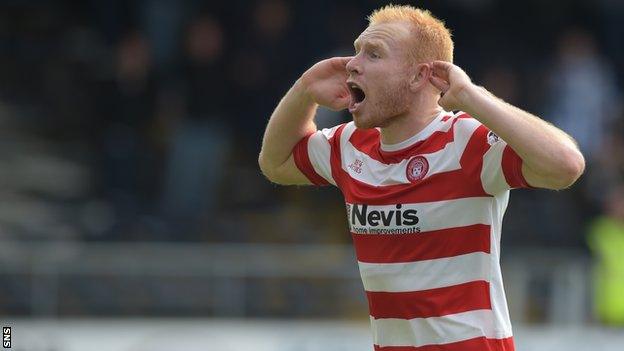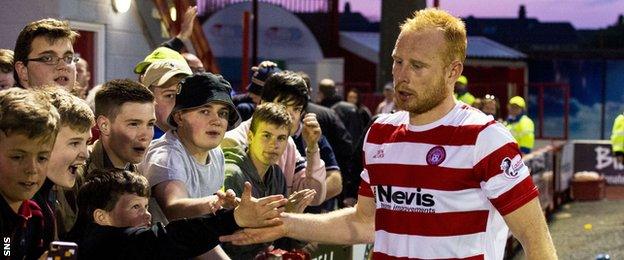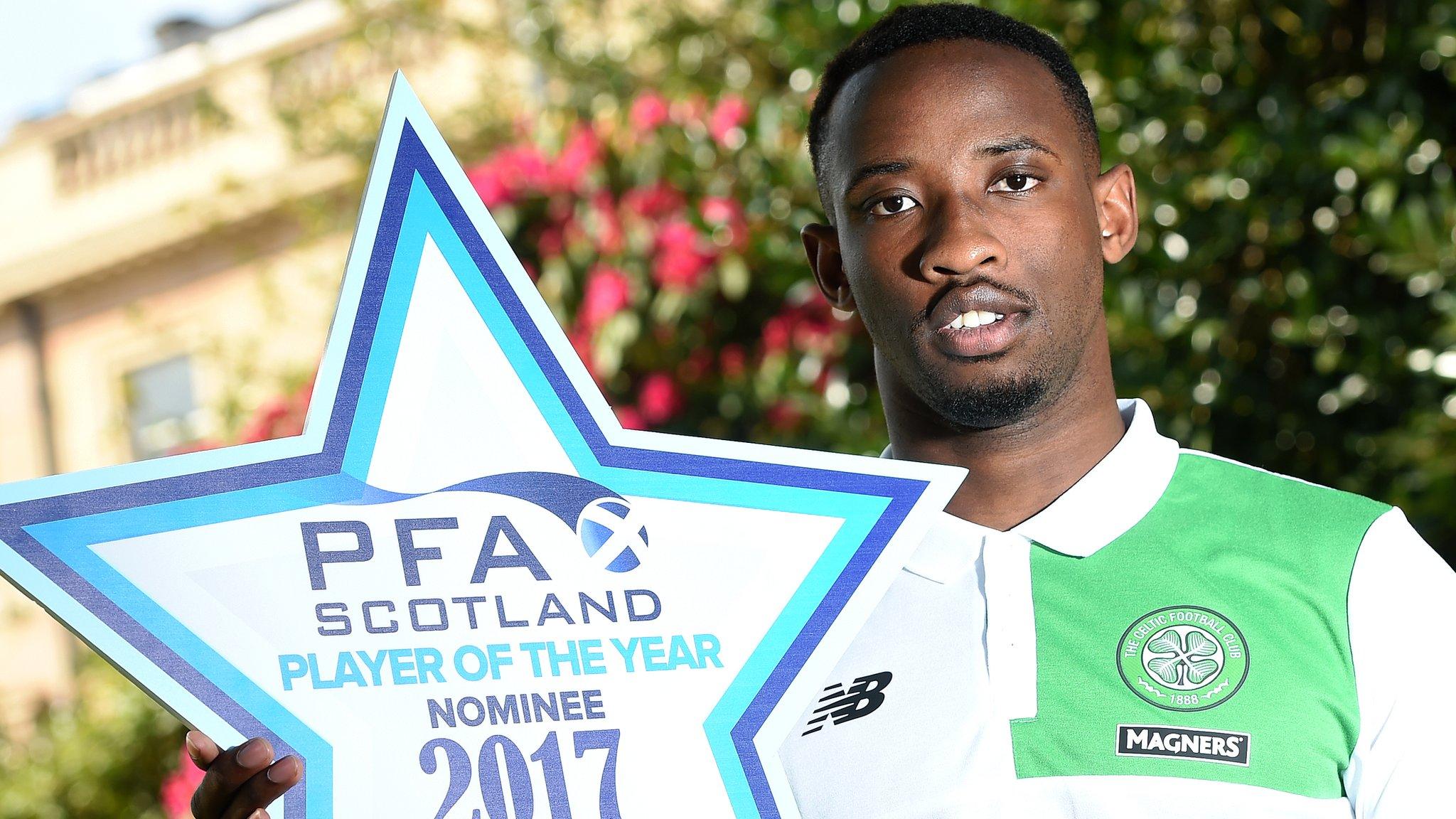Ziggy Gordon: 'Scottish coaches have so much to learn from Poland'
- Published

Ziggy Gordon says his stint in Polish football has been "amazing" and transformative for his football
Scottish coaches have "so much to learn" from their Polish counterparts, according to Ziggy Gordon.
The former Hamilton and Partick Thistle defender, 24, joined Polish top-flight club Jagiellonia Bialystok in January.
Gordon admits he was shocked by the detail and sophistication of the coaching he received compared to the approach in Scotland.
"I honestly feel like I'm a totally different player than what I was in Scotland," he told BBC Scotland.
"I had a lot of good managers working with me both at Hamilton and at Partick Thistle.
"I like to think the aggression and determination will never leave me, but in terms of understanding the game, I feel like I'm a different player.
"I almost feel I didn't know how to play football until I came here, which is quite incredible.
"I don't want to talk down Scottish football, but we have so much to learn in terms of technical ability, structure of play, all these things you see at international level.
"The whole structure and how they make the game so easy - once you work hard and understand the way they want to play, it makes the game so much easier.
"I think in terms of that, there's so much Scottish coaches can learn from coaches over here."
'They're a lot more precise'

Gordon left Accies for Partick Thistle in July last year
Gordon, who has played six times for the side who top the Ekstraklasa after 31 games, feels the quality of individual coaching administered in Poland is superior to that which he was accustomed in the Scottish top-flight.
The defender, who worked under managers Billy Reid, Alex Neil and Martin Canning at New Douglas Park then Alan Archibald at Firhill, says his Polish coaches "leave no stone unturned" in their match preparations.
"They're a lot more precise, everything is very match-related," he said. "It's very structured. Nothing is left for players to make decisions in games.
"I remember my first training session here as the new player and we had a game the next day.
"Usually, you'll go through set-pieces. We did free-kicks for and against, corners for and against, and then, for some bizarre reason, and I couldn't understand it, we did pass-backs as if the goalkeeper picks the ball up and you get an indirect free-kick.
"Now, I think that's only happened maybe twice in my whole career, but they did it, just to cover every single scenario.
"So, if we get an indirect free-kick for or against, we know exactly what positions to take up. I think that just epitomises that no stone is left unturned.
"It was my first real shock and it wasn't my last. In terms of the analysis, it's almost as if every question you have in your head is answered within the time of you stepping into that meeting and coming out. It is quite amazing."
Players are given homework

Gordon made 19 appearances for Partick Thistle before moving to Poland in January
Gordon reveals the depth of the Polish coaching extends to the roles of team-mates, with players given homework and expected to understand how their colleagues will operate in match situations.
"It is almost like a rule book you need to learn," the defender said. "Not only do you need to know what position to take up when you have the ball, you need to know what position to take up when every other player has the ball.
"You need to know almost 11 different movements all over the park, which is incredible, and certainly took me a while to get my head around.
"But now it is a lot easier to play and, quite honestly, you go into a game and you know all you need to do is show up, because everything else has been dealt with before."
'They make far superior decisions on the ball'
Gordon asserts that Scotland produces many talented youngsters but argues the Polish set-up prepares their youth players more comprehensively for the rigors of first-team football.
"I don't think individual players in terms of quality are any different from the players in Poland, but I think their understanding of the game is far superior," he said.
"They make far superior decisions on the ball and the movement without the ball is on a different level.
"I know for a fact we have so many superb young players, but I just think we can educate them far greater from a young age so, when they get to the first team, they're a lot more equipped, psychologically, physically, to deal with the demands of being a professional football player.
"Here, there are 14-15,000 fans at every one of our games and, regardless of what player plays, it's just another day at the office.
"In terms of getting players ready to play top-flight football, we have a long way to go."
- Published3 May 2017

- Published2 May 2017

- Published2 May 2017
